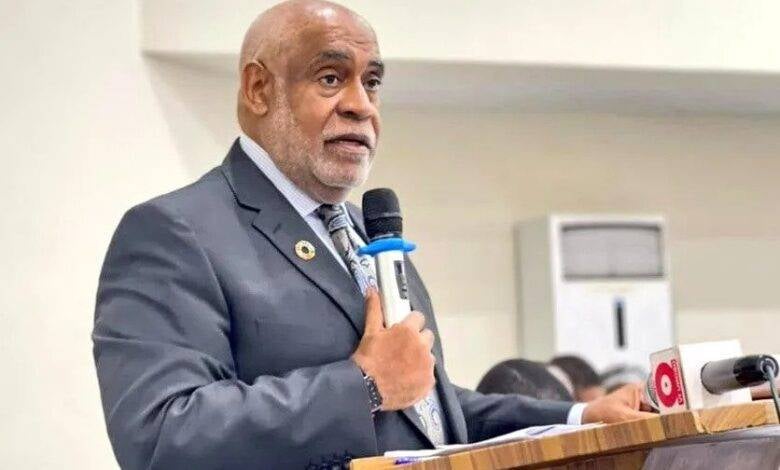The United Nations has called for a unified response from all sectors of Ghanaian society to the pervasive issue of illegal small-scale mining, commonly referred to as galamsey. In a statement issued by Charles Abani, the UN Resident Coordinator for Ghana, the organization highlighted the grave consequences of galamsey on the country’s economy, social fabric, and environment. Abani characterized illegal mining activities as having “devastating” effects, stating that they exacerbate poverty, damage livelihoods, pollute essential resources, harm public health, and contribute to conflict and illicit financial activities. This multifaceted crisis underscores the urgent need for collective action among various stakeholders to mitigate its impacts.
The environmental repercussions of galamsey are particularly alarming, as the largely unregulated mining operations typically utilize hazardous materials such as mercury. These toxic chemicals not only contaminate water bodies but also degrade agricultural lands, posing serious risks to food security and public health. Environmental organizations have pointed fingers at galamsey for the degradation of significant areas of forest cover in Ghana, signaling a continuing threat to biodiversity and ecological balance. This situation has sparked widespread public outcry, with thousands of Ghanaians participating in protests that advocate for stronger governmental action against illegal mining.
In light of these challenges, Abani urged peaceful and responsible engagement from the protesting communities, emphasizing the importance of professional law enforcement during demonstrations. The call for maintaining human and civil rights while ensuring public safety highlights the delicate balance required to address this sensitive issue effectively. For lasting change to occur, it is vital that both citizens and authorities uphold a framework that respects individual rights while tackling the illegal mining crisis decisively.
To combat the complexities of galamsey, Abani appealed for unity and collaboration across various sectors of Ghanaian society, encouraging government leaders, political parties, traditional and religious institutions, civil society organizations, and the private sector to work collectively. According to Abani, a successful resolution to the issues arising from illegal mining necessitates joint efforts that transcend political and other divides. He emphasized the imperative for collective strength and cooperation, asserting that only through united action can Ghana hope to succeed in addressing this intricate problem.
The UN’s commitment to supporting Ghana in its quest for sustainable development, environmental stewardship, and peace reinforces the global organization’s role as a mediator and advisor in navigating such challenges. The solidarity demonstrated by the UN underscores the gravity of the situation while offering a framework for future initiatives aimed at preserving the environment and ensuring a sustainable quality of life for Ghanaians. This collaboration is essential not only for immediate relief but also for long-term strategies that prioritize ecological well-being and community health.
Ultimately, addressing the ongoing crisis of illegal small-scale mining in Ghana requires a multifaceted approach that engages every segment of society. The UN’s call for action serves as both a reminder of the serious implications of galamsey and an encouragement for collective grassroots initiatives. The fate of Ghana’s environmental integrity, social stability, and economic prosperity depends upon the ability of various institutions and communities to come together, foster dialogue, and implement structured solutions that nurture both the environment and the livelihoods of its people. The path forward must be marked by commitment, responsibility, and a shared vision for a more sustainable future.














